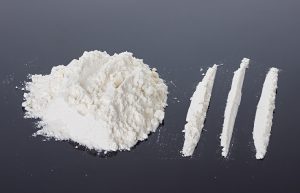

September is National Alcohol and Drug Addiction Recovery Month, so we present our top stories regarding alcohol and drug addiction, along with related topics on glaucoma, cocaine, stroke, atrial fibrillation, diverticulitis, and rheumatoid arthritis.
Alcohol and drug addiction can drastically impact a person’s life and raise the risk of many negative health consequences. Recovery from these addictions can not only improve quality of life, but also reduce the risk of these health conditions.
During the month of September, we discuss the topic of recovery from addiction, raising awareness of prevention and treatment options available for alcohol and drug abuse.
 Glaucoma risk for current and former cocaine users is 45 percent higher, compared to people without drug use history. The study involving 5.3 million men and women found that cocaine use was associated with open-angle glaucoma – the most common form of glaucoma. Men with open-angle glaucoma also had significant exposure to marijuana and amphetamines.
Glaucoma risk for current and former cocaine users is 45 percent higher, compared to people without drug use history. The study involving 5.3 million men and women found that cocaine use was associated with open-angle glaucoma – the most common form of glaucoma. Men with open-angle glaucoma also had significant exposure to marijuana and amphetamines.
Furthermore, those with a history of drug use developed glaucoma 20 years earlier than those who did not have any exposure to narcotics.
First author Dustin French said, “The association of illegal drug use with open-angle glaucoma requires further study, but if the relationship is confirmed, this understanding could lead to new strategies to prevent vision loss.”
Glaucoma is the second leading cause of blindness. The researchers speculate that an increase in eye pressure gradually damages the optic nerve, contributing to vision loss. Continue reading…
Individuals with atrial fibrillation (heart rhythm disorder) who drink alcohol are more likely to experience stroke, compared to those who don’t drink. Study leader Dr. Faris Al-Khalili said, “Doctors should ask their [atrial fibrillation] patients about alcohol use and advise patients to cut down if they are drinking more than is recommended.”
“Doctors should ask their [atrial fibrillation] patients about alcohol use and advise patients to cut down if they are drinking more than is recommended.”
The study included over 250,000 Swedish adults with atrial fibrillation, a known risk factor for stroke.
During the follow-up period of five years, the researcher’s uncovered two risk factors associated with a higher risk of stroke in atrial fibrillation patients: age and alcohol-related hospitalization. Continue reading…
 Diverticulitis affects the way a person tolerates alcohol, while alcohol consumption can lead to complications of diverticulitis. Diverticulitis is a condition characterized by inflamed or ruptured diverticula, which are bulging sacs in the lining of the large intestine.
Diverticulitis affects the way a person tolerates alcohol, while alcohol consumption can lead to complications of diverticulitis. Diverticulitis is a condition characterized by inflamed or ruptured diverticula, which are bulging sacs in the lining of the large intestine.
In general, alcohol negatively impacts even healthy individuals, but for someone with diverticulitis, the effects of alcohol may be greater and much worse.
Alcohol can trigger diverticulitis symptoms and even increase the frequency of flare-ups. You may find that your symptoms are managed more easily and that your flare-ups subside once you start avoiding alcohol.
If you are taking medications for diverticulitis, alcohol consumption can lead to further complications, so avoiding alcohol entirely is recommended to reduce the risk. Alcohol is well known for its adverse interaction with many medications and the ensuing complications. Continue reading…
A few alcoholic beverages every week can reduce the chances of getting painful rheumatoid arthritis. In fact, having two to four beers each week may decrease the odds in women by more than 30 percent.
The “Nurses’ Health Study” (NHS) and the “Nurses’ Health Study II,” published in the Annals of the Rheumatic Diseases, examined the link between alcohol consumption and rheumatoid arthritis.
arthritis.
Researchers looked at 121,701 female registered nurses to assess alcohol and food consumption every four years, beginning in 1989. They identified cases of rheumatoid arthritis using medical records and what’s called a “connective tissue disease-screening” questionnaire.
Researchers found that anyone who moderately drank alcohol lowered their risk of rheumatoid arthritis by roughly 21 percent. Better yet, women who drank beer two to four times every week decreased their risk of developing rheumatoid arthritis by 31 percent, compared to women who drank no beer at all. Researchers concluded that there is a modest association between long-term, moderate alcohol consumption and the lowered risk of rheumatoid arthritis. Continue reading…
 There is a growing problem in the U.S. of individuals addicted to heroin and painkillers, but a new study suggests that anti-addiction drugs may help combat this issue. The drug – naltrexone – is injected monthly and helps block the euphoric sensation of opioid painkillers and heroin, leading to lower relapse rates. During the study, researchers found that even after six months, there was no overdose in the naltrexone group, compared to the other group, which had five.
There is a growing problem in the U.S. of individuals addicted to heroin and painkillers, but a new study suggests that anti-addiction drugs may help combat this issue. The drug – naltrexone – is injected monthly and helps block the euphoric sensation of opioid painkillers and heroin, leading to lower relapse rates. During the study, researchers found that even after six months, there was no overdose in the naltrexone group, compared to the other group, which had five.
In 2014, a record-breaking amount of deaths linked to opioid painkillers was observed – over 28,000. Study author Dr. Joshua Lee said, “We thought this was a good approach to relapse prevention . . . but I was surprised by how clearly effective this medication was. We haven’t had another study like this in the United States. This is potentially a very important study if a [health care] provider wasn’t convinced before that they should offer naltrexone. They may be less skeptical now.” Continue reading…
Copyright © www.orthopaedics.win Bone Health All Rights Reserved